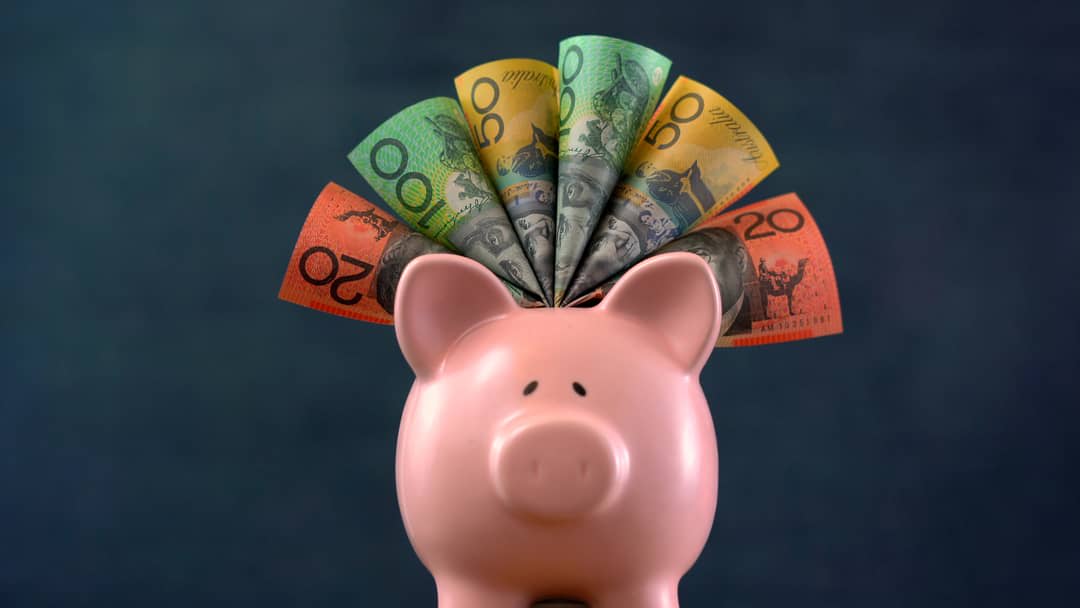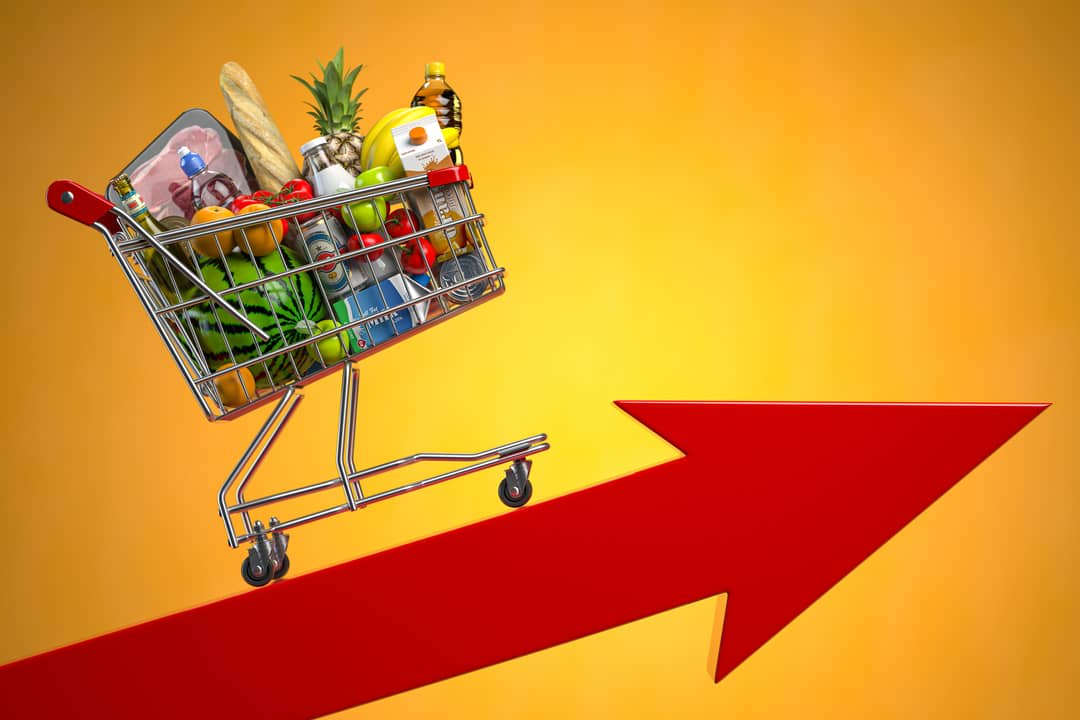
It’s official: The federal budget is now in “kitchen sink”, not “fiscal repair” mode.
No austerity to be seen here. No mere sandwich and milkshake. Let them eat cake? More like bringing home the bacon. And have you seen the price of bacon lately?
This week, Treasurer Josh Frydenberg splashed out billions in his “cost of living” budget, unashamedly pitched at low and middle-income earners, tradies, apprentices, pensioners, first-home buyers, the regions – in fact, virtually anyone who might consider re-electing the government in the coming weeks.
At this gravest of times the Coalition has served up an election budget designed simply to keep itself in power | | Katharine Murphy https://t.co/aZGv0uSazz— Guardian Australia (@GuardianAus) March 29, 2022
This budget injects cash directly into households and cuts fuel excise to deal with spiralling cost of living inflation pressures, skyrocketing petrol prices and embarrassingly flat wages.
Don’t forget, this boost is on top of massive JobKeeper and similar wage and welfare assistance distributed during the 2020-21 pandemic lockdowns. COVID-19 has been chiefly responsible for government debt ballooning to more than $800 billion, with a $79.8 billion budget deficit in 2021-22, some $20 billion better than forecast.
Cumulatively, total deficits will be $103 billion lower than forecast by 2025-26.
And, during COVID lockdowns, we did something extremely antithetical to our nature – we saved. Yes, saved. In fact, households hoarded an astounding $245 billion, with business accumulating a further $179 billion by January 2022.

Treasurer Frydenberg is depending on you – yes, you, the overburdened taxpayer – to spend this $424 billion. Preferably here, and not on the Amalfi Coast.
If the government is re-elected, 10 million Australians earning less than $126,000 will receive a bonus tax offset worth $1500. But is your vote for sale?
Why so hyper, inflation?
Famously, former British prime minister Harold Macmillan was once asked what he feared most. “Events, dear boy, events,” he replied.
Why? You can’t control them. Floods, fires, plagues, wars. They come out of nowhere and destroy the best-laid plans.
The past three years have been bookended with catastrophic bushfires and unprecedented floods, sandwiching prolonged lockdowns, underwritten by massive government wage subsidies. Combine this with the brutal war in Ukraine and you have the perfect storm.
All of these events have – or will – affect the 2022-23 budget in the short term. Whoever wins government will be forced to deal with price spikes, upward wage pressures and – very likely – three interest rate rises in 2022 alone. That’s what banks and business have already factored into their outlooks.
Energy, foodstuffs, housing, health, education and infrastructure are all getting hit by global inflation, exceeding 5% globally in 2021. We haven’t seen inflation increases of this magnitude for 20 years.
Australia’s inflation rate rose to 3.5% in 2021, roughly a third higher than wage increases (2.3%). The interest rate cycle is currently on an upward trajectory as the US Federal Reserve increases rates. Treasury forecasts higher inflation in 2022-23, as world food prices rise, exacerbated by wheat supply shortages from Russia and Ukraine.
The bottom line is that any wage increases have been entirely swallowed up by inflation, made worse by fuel prices.

The real headline inflation figure – the price increases on non-discretionary items, such as food, petrol, housing and health costs – was a whopping 4.5% in 2021 alone. No one can avoid these purchases. Concomitantly, our wages aren’t rising rapidly enough to meet cost of living pressures. In real terms, we’re less well-off due to the price of everything from housing to holidays.
Treasury’s CPI inflation prognoses are gloomy: 4.25% for 2021-22 (decreasing slightly), although the outlook from 2023-26 forecasts CPI falling to a more moderate 2.5% in four years. But in the meantime, you’ll need a wage increase of more than 4.25% to beat prices rises on those non-discretionary items.
Prediction? The restoration of immigration to pre-COVID levels will resolve skills shortage issues, but the boost to labour supply will also flatten wages as interest rates, driven by cost-push inflation, continue to rise incrementally.
Money’s too tight to mention
The budget’s centrepiece to address these inflationary pressures is the cost-of-living package. First, salary and wage earners on less than $126,000 will collect up to $1500 in tax offsets, boosted by an additional $420 in this budget. Pensioners will receive a one-off additional payment of $250.

The second aspect of the package is an immediate, but temporary, cut to the fuel excise, from 44 cents to 22.1 cents, but only for six months. Voters will see almost-instantaneous savings at the petrol bowser. Treasury also forecasts falling global oil prices over the coming months.
Easy money
The Treasurer claims COVID debt will peak lower and be repaid faster, due to the “fiscal dividend from a strong economy”.
Two factors have driven budget revenue. First, unemployment – touted as the lowest since the Whitlam government was in office in 1974 – is forecast to fall even further due to labour shortages.
Immigration is not forecast to return to pre-COVID levels for several years. Treasury assumed 160,000 persons in 2021-22, increasing to 190,000 per annum by 2023-24. In the meantime, there are more people in work, boosting taxation revenue and reducing welfare expenditure.
Unemployment at 4% in 2021-22 is actually better than Treasury’s forecast (4.5%). There could even be a three in front of this figure.
The second factor is resource exports, with iron ore prices at US$149 per tonne, although these are forecast to fall to US$106–$113 in 2022, due to high inventories in China. Thermal coal prices are 50–60% higher than previous peaks (yes, Germany is buying Australian coal, in case you’re wondering).
These are still historically high prices, which ensured that these short-term (12-month) factors boosted Treasury revenues by $70 billion more than forecast in 2021-22.
Our house
Rising global interest rates to dampen inflation means future mortgage pain is inevitable. Speaking of mortgages, have you heard anything about housing affordability? No? That’s because neither the LNP nor the ALP have plans to change negative gearing at present, and no state government wants to talk land taxes and stamp duty in an election year.
Instead, the government has continued its Home Guarantee Scheme for first-home buyers, doubling its places to 50,000. Couples can buy with a 5% deposit, while single parents can put down just 2%.

Melbourne median house prices have risen $90,000, while for Victoria the corresponding figure is $77,500 since the last budget. Great for sellers, but the 2022 Demographia International Housing Affordability report shows that Sydney and Melbourne are, respectively, the second and fifth-least-affordable housing markets in the world. There’s a message here – young (and not-so-young) people can’t afford houses. Which brings us to …
Department of Youth
Will there be a “Youthquake” at the 2022 federal election?
The government knows the youth vote can be a game-changer. That’s why the Treasurer unashamedly pitched the 2021-22 tax cuts at voters under 35.
It’s also why the budget injects an additional $400 million into trades apprenticeships, adding 35,000 places, subsidising years 1-3 of apprentices’ wages. That’s a win for tradies and their workers.
Employers can receive up to $7000 per quarter if they take on first-year apprentices in areas with skill shortages. Regional employers taking on apprentices receive 5% more. Small businesses can also deduct $120 for each $100 they devote to employees’ training.
OK, computer
Cybersecurity receives a $9 billion boost, with a cyber and critical technology centre to be established within the Office of National Intelligence, which advises the PM’s office. It also recognises that the fifth dimension of warfare – cyber – is a real and present danger as hostile hackers launch denial-of-service attacks on government and business sites and target energy grids.
How important is cyber warfare? Ask Mr Putin – the President of Russia website has been down for more than a month.
Love for sale
Only one issue remains – your vote. Will you take the money and run? Or will this budget be enough to influence your vote?
It may move some, but it would take a courageous punter to predict the election outcome with certainty. Recall Harold Mac’s wise words: “Events, dear boy, events.”





